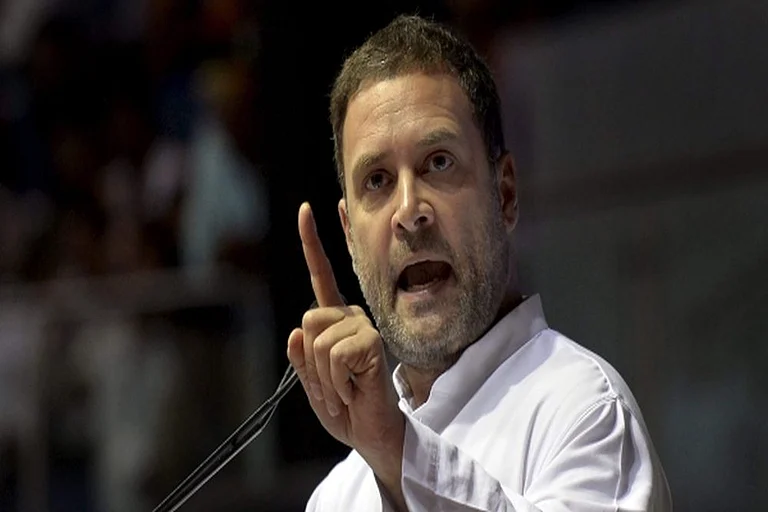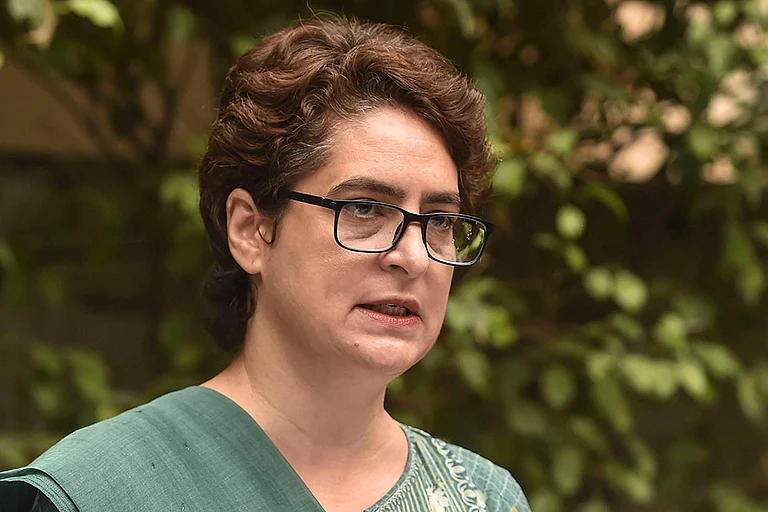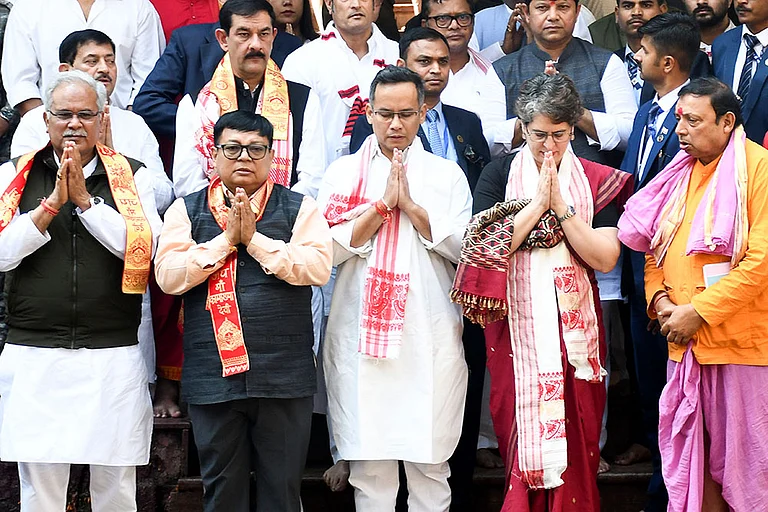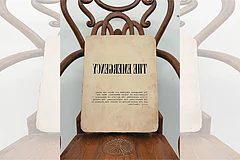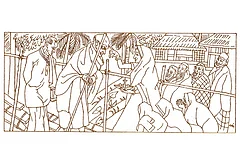The political journey of my father, Basawon Sinha, began with the Congress Socialist Party and continued through the formation of the Janata Party. As a co-founder of the Congress Socialist Party, he believed Socialism and democracy must coexist, stating, “Socialism without democracy is a dictatorship, and democracy without socialism is a fraud.”
My father joined the freedom movement in 1925, and was part of Bhagat Singh’s Hindustan Socialist Republican Army. He began the trade union movement in the country, and both my parents were closely associated with the Hind Mazdoor Sabha.
After India gained independence, my father felt Socialists should engage in electoral politics. But Jayaprakash Narayan (JP) believed that social reform was more crucial and encouraged my father to join the Sarvodaya movement. Although we stayed close to JP uncle’s family personally, politically, he and my father parted ways due to differing views on political involvement.
In 1971, JP uncle led the Sampoorna Kranti (Total Revolution) movement, urging my parents to join the fight against corruption, a period marked by significant political upheaval culminating in the Emergency. My father believed the Socialist movement should not be divided into ‘reformist’ parliamentary activity and ‘militant’ struggle. In February 1948, the Congress Socialist Party split from the Congress. My father played a significant role until the party merged with other groups to form the Janata Party in 1977. He was on the national executive during 1939-77 and was state president for many years. He won the Dehri-on-Sone seat in 1952 and became a leading opposition figure until 1962, serving as a Member of the Legislative Council from 1962 to 1968 and later as a cabinet minister in the 1967 coalition government. In 1977, he was re-elected and served as Cabinet Minister for Labour, Planning and Industry in the Janata Party government until his passing on April 7, 1989.
My mother, Kamala Sinha, was elected twice to the Rajya Sabha from 1990 to 2000. She served as India’s Ambassador to Suriname and Barbados. She became the first woman Union Minister of State for External Affairs in I K Gujral’s cabinet. Neither of my parents encouraged anyone in the family to enter politics, or saw it as a space for personal gain.
A notable personal memory is my father attending Indira Gandhi’s wedding and presenting her with sindoor (vermilion) as a gift. She respected him personally, highlighting a time when political differences didn’t affect personal relationships.
The Emergency was triggered by the Allahabad High Court’s ruling against Indira Gandhi’s election. My father received word the day before the Emergency was declared and left home that evening. We dropped him to Danapur railway station, avoiding police surveillance at Patna station. He didn’t return home for 18 months; I only saw him once during this period.
My mother, a member of the Bihar Legislative Council, was arrested in August. A clandestine CBI office was set up near our home, monitoring our activities, and our phone lines were tapped.
In August 1975, Patna faced severe floods. The Army blew up a canal to protect the Danapur cantonment, causing water to surge into our home. My eldest sister was at the Patna Medical College, while my second sister and I were at home. Siraj, our driver, managed to reach her and inform her of our predicament. As floodwaters rose, my sister contacted the rescue authorities, but they demanded to know my father’s location before providing us a boat. She tried to swim to find help. Fortunately, someone recognised her and contacted rescue workers who helped us escape.
After our rescue, my sister tried to contact our mother, but prison officials misinformed her that we had drowned. This constituted psychological abuse. My father, who was in hiding, got the same misinformation about us.
The Socialist Party opposed the Congress government during the Emergency. My mother was released in late 1976 but had to go into hiding again. Despite everything, I have a soft spot for Indira Gandhi. She could have extended the Emergency indefinitely but chose to call for elections in March 1977. The Congress lost, and the Janata Party government was sworn in, leading my parents back home. Indira Gandhi learnt valuable lessons from this experience, recognising the importance of not taking the country for granted and avoiding suppression. Today, we face a quasi-dictatorship where dissent is labelled anti-national. The political landscape has shifted from ideological debates to personal attacks, emphasising the need for a balance between democracy and Socialism in order to prevent authoritarianism.
(As told to Tarique Anwar)
MORE FROM THIS ISSUE
Rita Sinha taught English at the University of Delhi. She reflects on her family’s experience during the Emergency in India
(This appeared in the print as 'Emergency Diary')







